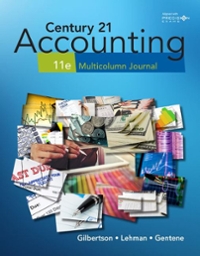Question
1. A sole trader: (a) Must operate under a registered business name . (b) Can collect all profits of the business as their personal income
1.
A sole trader:
(a)
Must operate under a registered business name
.
(b)
Can collect all profits of the business as their personal income
.
(c)
Has limited liability
.
(d)
All of the above
.
2.
Partnerships are regulated by:
(a)
Legislation
.
(b)
Legislation and common law
.
(c)
Legislation, common law and equity
.
(d)
Legislation and equity
.
3.
A partnership is bound when a partner acts within:
(a)
Actual authority or apparent authority
.
(b)
Actual authority or obvious authority
.
(c)
Authentic authority or apparent authority
.
(d)
Authentic authority or obvious authority
.
4.
An incorporated association and a company are both:
(a)
Separate legal entities
.
(b)
Formed under the
Corporations Act 2001
(Cwlth)
.
(c)
Structures which provide for profit sharing by members
.
(d)
Structures which can be public or proprietary
.
5.
A company must be registered with:
(a)
The Australian Competition and Consumer Commission
.
(b)
The Australian Securities and Investment Commission
.
(c)
The Australian Corporate Bodies Commission
.
(d)
The Australian Financial Institutions Commission
.
6.
Which of the following is a public company?
(a)
Mortenby and Co Pty Ltd
.
(b)
Public and Mutual Pty Ltd
.
(c)
Chemicalswill Cola Ltd
.
(d)
Microapel Pty Ltd
.
115
Chapter 3:
Choosing a Business Structure
7.
A proprietary company:
(a)
Cannot raise funds from the public
.
(b)
Cannot raise funds from the public unless they do so by prospectus
.
(c)
Cannot raise funds from the public unless all directors agree
.
(d)
Cannot raise funds from the public if the company can meet its debts any other way
.
8.
A trust created by the intentional act of the settlor using a written or spoken instrument is:
(a)
A constructive trust
.
(b)
An implied trust
.
(c)
A resulting trust
.
(d)
An express trust
.
9.
The trustee is the legal owner of the trust property and therefore:
(a)
May use the trust property however they wish, including for their own benefit
.
(b)
Must use the trust property for the best interests of the beneficiary
.
(c)
Must use at least some of the trust property for the best interests of the beneficiary
.
(d)
May use the trust property however they wish including for their own benefit, as long as the
beneficiary is kept informed
.
10.
A trust will terminate when:
(a)
The trustee loses interest
.
(b)
The trust has concluded
.
(c)
The trustee dies, retires or is removed
.
(d)
(b) and (c)
.
11.
Which of the following statements is true about a franchise?
(a)
A franchise is a form of business structure
.
(b)
A franchisee will always have limited liability
.
(c)
A franchise is a license to operate a business
.
(d)
A franchise or will always dictate the business structure of the franchisee
.
12.
Which of the following statements is true about a company?
(a)
The law regards the company as an artificial legal person
.
(b)
The directors of the company decide whether the company should have the legal power to sue or be sued
.
(c)
The shareholders decide whether the company should have the legal power to enter into contracts
.
(d)
All of the above
.
116
CORPORATIONS
AN
d TR
USTS L
A
w
13.
Which of the following statements is false about an incorporated association?
(a)
It can enter into contracts in its own name
.
(b)
The legal liability of its members is limited to a sum which is three times their membership fees
.
(c)
It can own property in its own name
.
(d)
It can sue or be sued
.
14.
A company director is not normally liable for the debts of the company because of the
(a)
Corporate fence
.
(b)
Corporate force field
.
(c)
Corporate screen
.
(d)
Corporate veil
.
15.
Which of the following are advantages of a limited liability company?
(a)
The shareholders of the company are not personally liable for the debts of the company
.
(b)
The ability to raise capital
.
(c)
The company itself can enter into contracts
.
(d)
All of the above
.
Step by Step Solution
There are 3 Steps involved in it
Step: 1

Get Instant Access to Expert-Tailored Solutions
See step-by-step solutions with expert insights and AI powered tools for academic success
Step: 2

Step: 3

Ace Your Homework with AI
Get the answers you need in no time with our AI-driven, step-by-step assistance
Get Started


